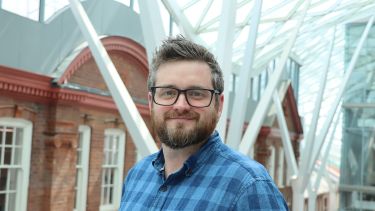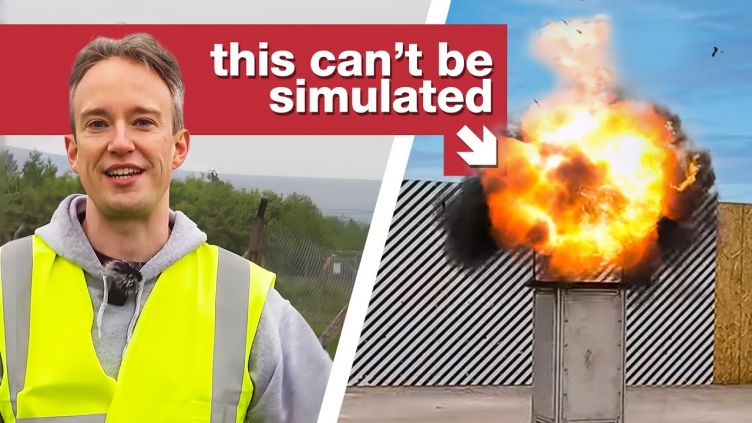Explosions are a pressing and pervasive threat in the modern world. Terrorist attacks, industrial accidents such as the 2020 Beirut explosion, and the ongoing conflict in Ukraine have highlighted a pressing need for civilian infrastructure to be designed for resilience against extreme loading. Current methods, however, are either overly simplistic, or too computationally expensive to properly consider the high levels of uncertainty of real-life events.
This project aims to develop the next generation of innovative tools for blast protection engineering in an industrial-relevant setting, using cutting-edge machine learning and data-driven techniques. I am excited to get started and to continue expanding on my current research in collaboration with Arup’s Resilience, Security and Risk (RS&R) team!
Dr Sam Rigby
Senior Lecturer in Blast and Impact Engineering at the University of 91Ě˝»¨
Significant two-way knowledge transfer will be achieved through the fellowship, ultimately providing UK industry with world-leading tools and also providing a firm real-world basis, practical case studies, and clear industrial relevance for Sam’s teaching. This will put the UK at the forefront of research and teaching blast protection engineering worldwide.
Why did you apply?
My research into the effects of explosions on structures is aimed at learning more about the underlying physical processes so that we can better protect against these sorts of effects in the future. Arup RS&R are world-leaders in blast protection engineering, and there is a natural (and substantial) overlap between our aims, expertise, and interests. Essentially, my academic work already aims to solve the sorts of problems that Arup RS&R encounter on real-world projects, so this fellowship gives me a direct route to inform industry practices.
What do you hope to achieve?
I teach a Master’s level course on Blast & Impact Effects on Structures, which is regularly attended by practising blast protection engineers looking to further their knowledge. Many of our graduates also go on to secure jobs in blast protection engineering firms. One aspect of this fellowship is to make sure that my teaching is as relevant and up to date as it can be, by giving me first-hand experience of the sorts of projects our graduates will be working on. I aim to refresh and update my teaching material accordingly, to go beyond what the textbooks say. This is a real strength of research-led teaching.
Furthermore, by working closely with Arup RS&R, I can further develop some of the tools and new techniques I have been working on, and make sure that engineers can use these to improve their designs. This is a great opportunity to maximise the impact from my research. In the final stages of the fellowship, we will work collaboratively to identify future research streams (such as PhD projects, experimental programmes, and larger multi-institutional bids). Arup have always been innovators and see great value in Research and Development, and this aspect of the fellowship will enable me to use my skills as an academic researcher to enhance this.
What’s next?
I’m looking forward to getting started! I already have a number of final-year students lined up to work on dissertation projects informed by initial discussions with Arup RS&R. This means I can get started with some of the two-way knowledge exchange aspects of the fellowship almost instantly.
….
Are you interested in learning more about how explosions work and how our research helps save lives? Check out Sam’s collaboration video with educational YouTuber Tom Scott.


